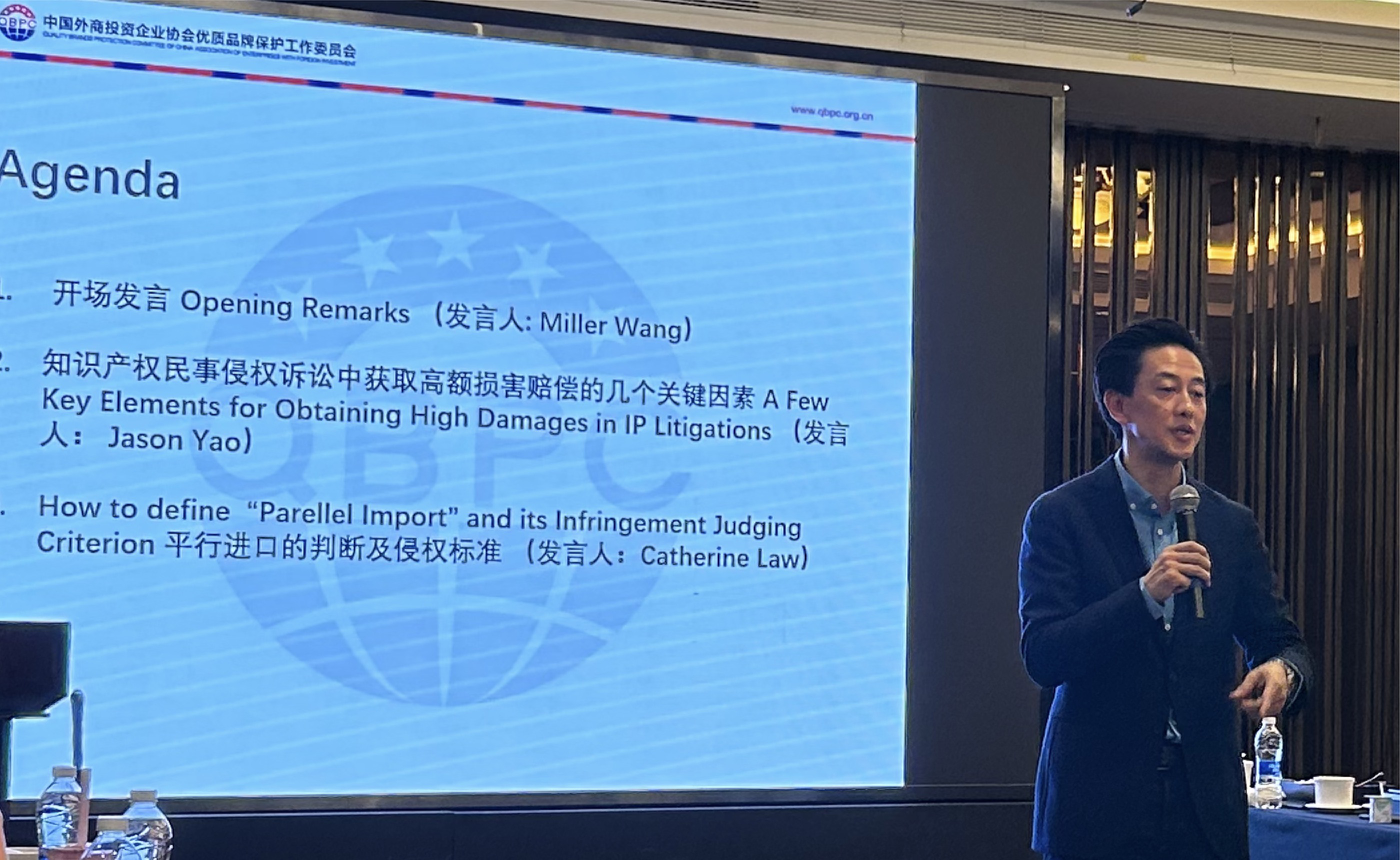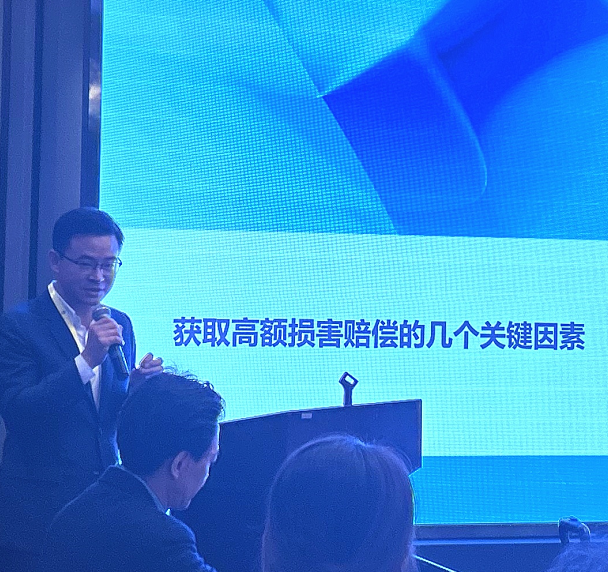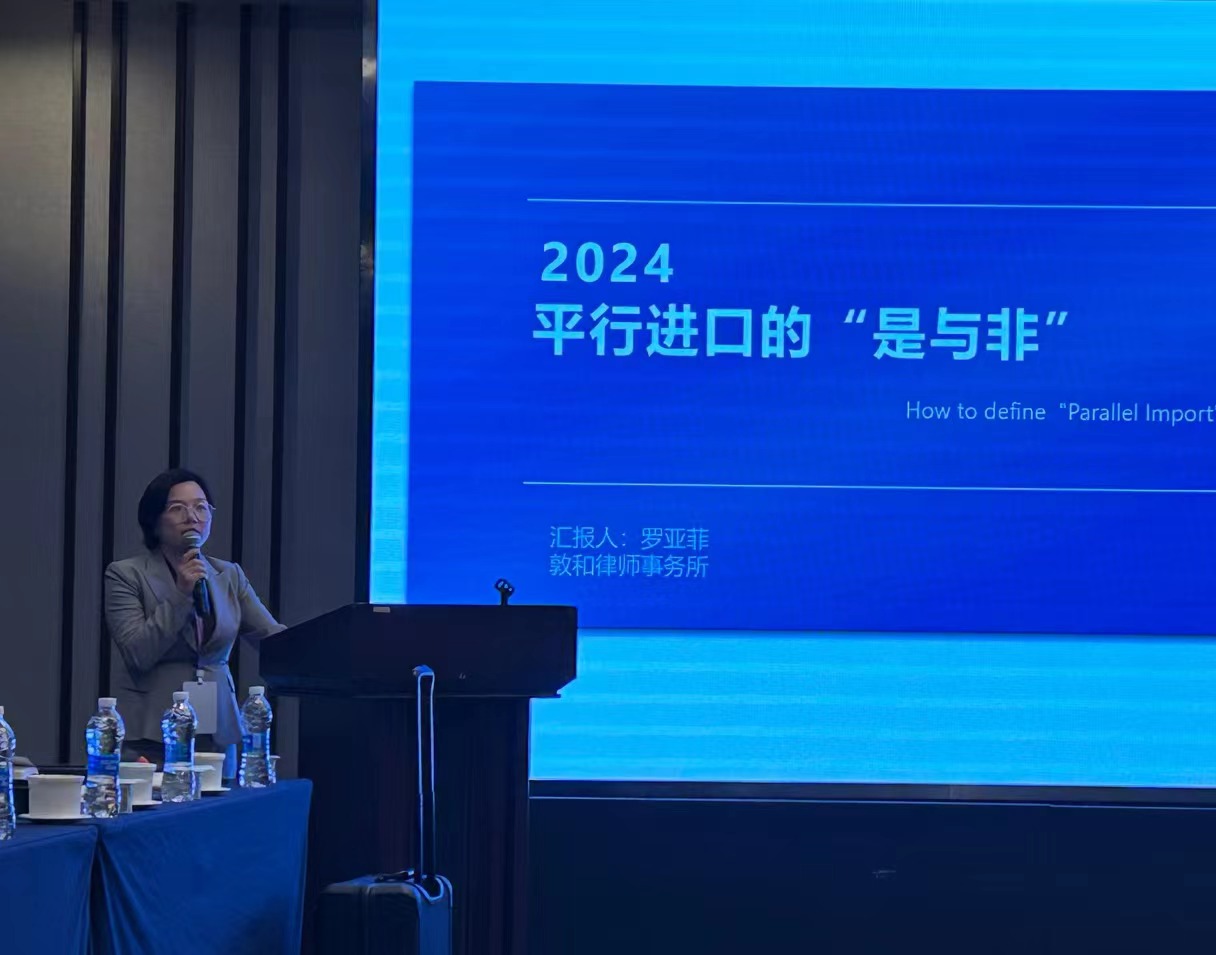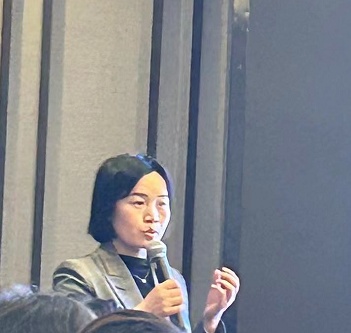On March 19, Quality Brands Protection Committee of China Association of Enterprises with Foreign Investment (QBPC) Luxury Goods IWG and the Sports, Fashion and Lifestyle IWG held a joint IWG Lunch Meeting in Shenzhen. Hosted by Luxury Goods IWG Coordinator Miller Wang, the meeting witnessed the presence of over 40 members from both IWGs, and wonderful speeches and discussions on high compensation in intellectual property infringement lawsuits, judgment and standards for infringement in parallel imports, and strategies for defending the rights against counterfeits on overseas platforms.

Miller Wang
Miller Wang started the meeting with his gratitude to the participants for their presence and the introduction of speakers. Then, Sports, Fashion and Lifestyle IWG Coordinator Esther Dong called for more joint activities of the two IWGs in the future since both faced similar issues in IP protection.

Jason Yao
Jason Yao shared his insights on key metrics for high compensations in IP infringement litigation. First of all, he introduced legal provisions and judicial interpretations of the standards of IP infringement damages. Then, he listed several key metrics for high compensations, including the determination on targets of lawsuits, the choice of competent courts, and the collection of sufficient evidence, including the scale of and the profits through the defendant's infringement through multiple channels. Jason also elaborated on a punitive compensation system from diverse perspectives such as judgment basis and the definitions of deliberateness and gravity of the circumstances.

Catherine Law
Then Catherine Law made a presentation on the definition of the parallel import and the standards for associated infringement. Beginning with the analysis on a variety of cases, she summarized the commonality of non-infringement cases, including the match of the goods and their logos, the consistency of trademark right holders, no confusion in the market as well as no damage on consumers’ benefit and market order. Consequently, while evaluating how parallel import could constitute trademark infringement, she said that according to a popular legal perspective, substantial differences between imported and domestic goods could lead to trademark infringement. In addition, she outlined the commonality embodied by the cases about trademark infringement in parallel imports, including damages in package, traceability code, and bar code, as well as the addition of signs, and the unauthorized use of Chinese trademarks. Besides, she tapped a bunch of recent controversial hot cases while discussing whether a right holder with certain complicated control over authorization or partnership could be recognized as “the same right holders” based on the definition of parallel import. Such a speech invited a heated discussion among participants.

Alice Hou
After that, Alice Hou elaborated on evidence collection and the strategies for safeguarding rights against counterfeit products sold across the border. She expressed that it had become more difficult for brand owners to safeguard their rights against the backdrop of increasingly diversified shopping platforms at home and abroad, and the growing demand of overseas consumers for Chinese commodities. Under this circumstance, she called for joint efforts by brand owners to draw more attention and support of law enforcement authorities both at home and abroad. Her speech triggered intense discussion among members of IWGs on the governance of online platforms and related legal issues.
In the end of meeting, Miller Wang extended his appreciation to all guests and held that many topics discussed at the meeting were worthy of further exchange. He looked forward to the next joint IP salon.
